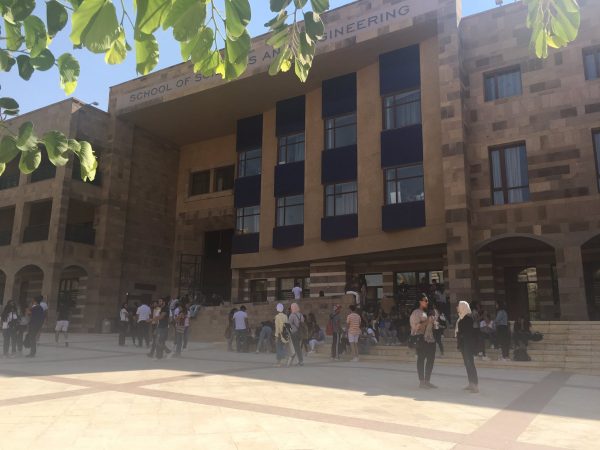Petroleum Engineering Still Seeking Accreditation Ten Years On

By: Rania Khalil
@RaniaYehia
AUC’s Petroleum Engineering major (PENG) is yet to receive its academic accreditation 10 years after it was established.
Academic accreditation, which is awarded through the US-based Accreditation Board for Engineering and Technology (ABET), is an indication of trusted and qualified education.
According to ABET, the process should not take more than 18 months since a major is first offered to be completed.
Accreditation is a self-assessment process, which entails an evaluation of the quality of the courses, professors and the overall quality of the program structure.
PENG Senator Mark Mohy told The Caravan that the department’s students have been anxious for the past couple of months over the ongoing accreditation issue, which started in Fall 2015.
“Students are panicking over what is to come in the work field if they do not receive this accreditation before [they] graduate,” he said.
But PENG Chair Amr Serag El-Din says that the major is still relatively new and that the department is not late on accreditation.
“The process is very complicated and has many steps and preparations, which usually take time,” he said.
Among the reasons accreditation has been delayed is the lengthy process of obtaining approvals from the Supreme Council of Egyptian Universities (SCU), which is required to submit the ABET application.
The major received its SCU approval in May 2016.
Serag El-Din added that the final date for accreditation will be during the 2018-2019 academic year.
But the issue has been a source of tension in the department since it was first raised in 2013.
In 2015 the students went on strike following the what they said was a lack of progress in the process.
They cite other issues the department is yet to address.
“You will find one professor teaching several courses during the same semester, as if the department is not capable of hiring other professors. The inconsistency in the syllabi also needs to be resolved. All these issues affect the accreditation [process],” said PENG Senator Karim Gamgoum.
El-Din said that the department is currently working on resolving these issues by developing a catalogue that will focus on petroleum-related courses, hiring new faculty members and adding a new advising board.
He also said it is possible for the accreditation to “extend backwards,” meaning that it could include students who graduated before the major received its accreditation.
Serag El-Din, however, said that accreditation is just a matter of reputation.
“There is a huge difference between accreditation and a professional degree. A professional degree is a must for every student in order to [get] a job while the academic accreditation is important for [the] university’s reputation, not students’ careers,” he added.
Students disagree; they say that the lack of accreditation impairs their ability to find jobs.
Accreditation is not just essential for a student’s career, but is also crucial for the university’s overall reputation.
“Graduates in the field, especially those interested in working in the public sector, need accreditation to secure a job in the market,” former Minister of Petroleum Abdullah Ghorab said.



